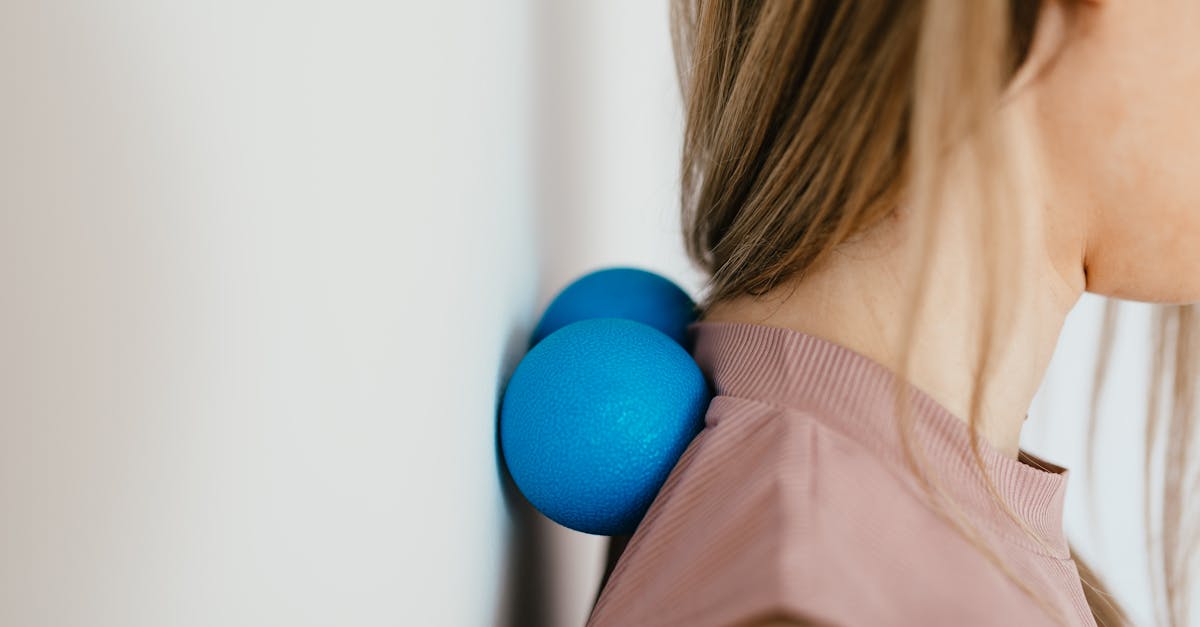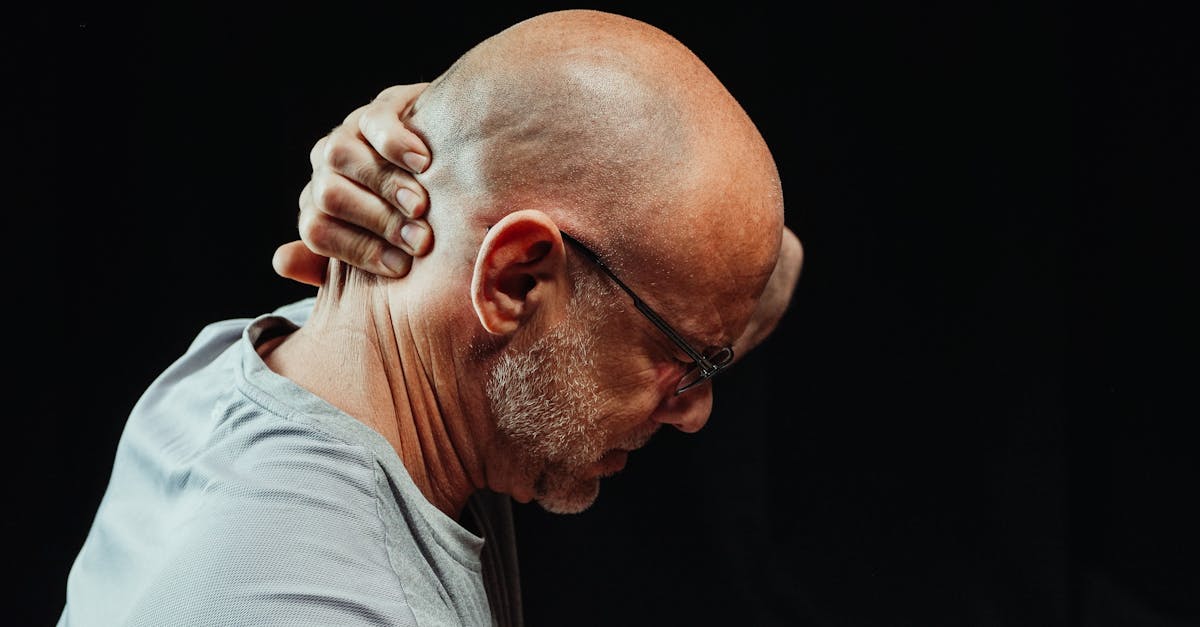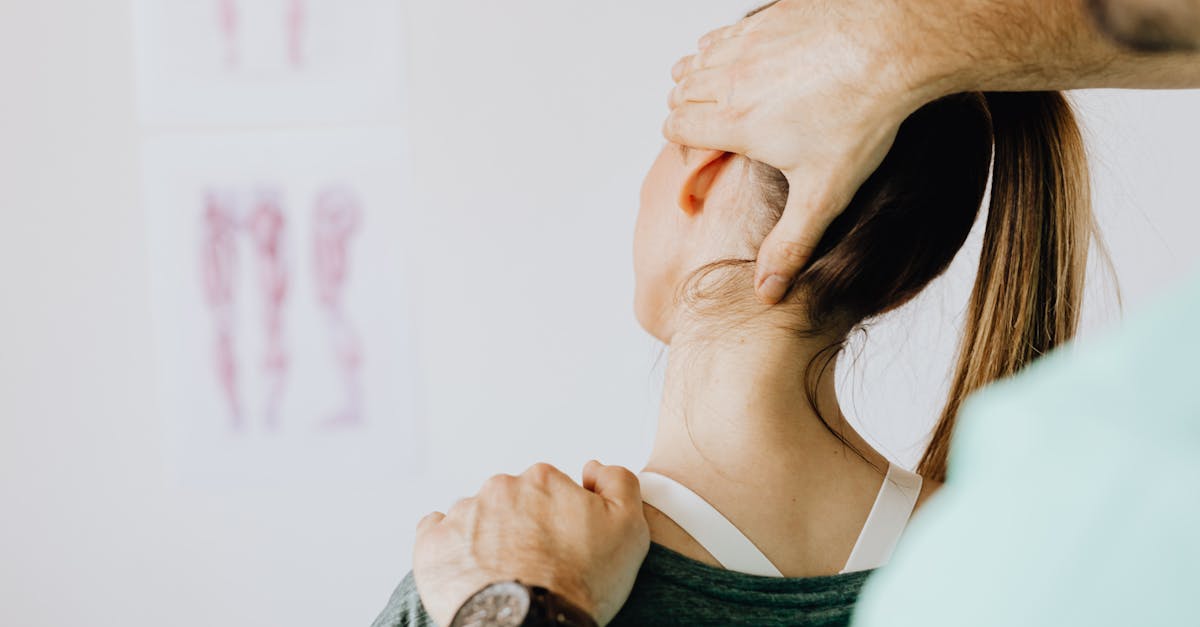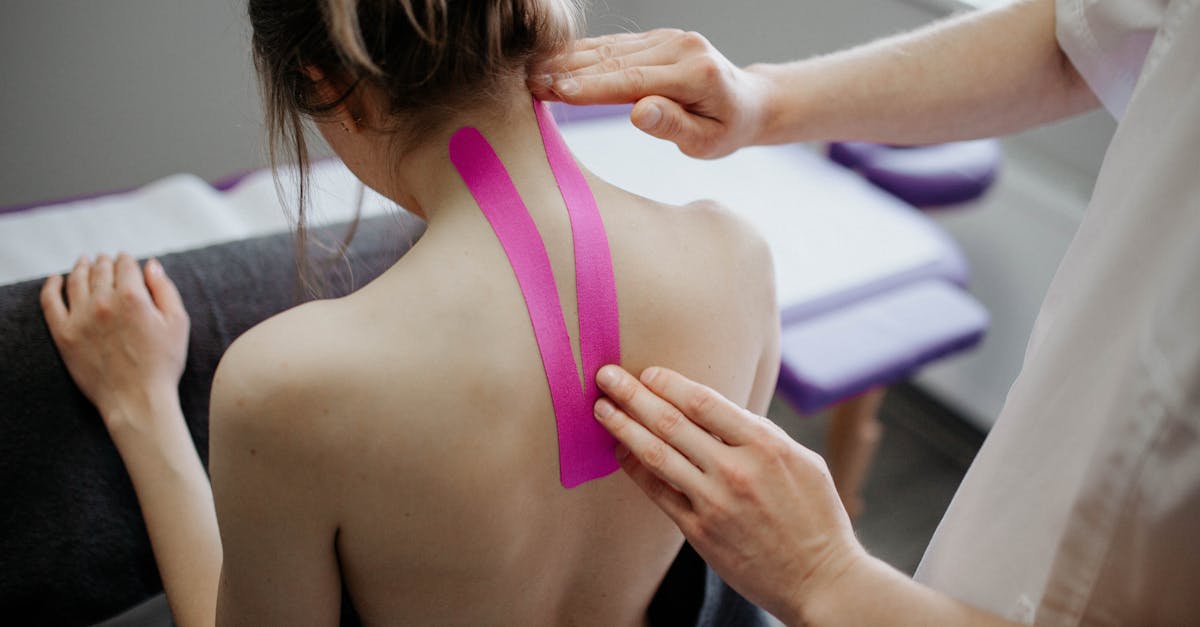|
In Short, waking up with neck pain is a common condition often linked to poor sleep posture, inappropriate pillow use, or underlying medical conditions. Understanding the causes can pave the way for effective relief strategies that improve overall quality of life. Benefits include enhanced mobility, reduced stiffness, and increased comfort upon waking. By implementing practical measures such as using ergonomic pillows and performing gentle stretches, individuals can aim to reclaim their freedom of movement while promoting better sleep health. |
Waking up with neck pain is a common issue affecting many people, often resulting from poor sleep posture, inadequate pillows, or underlying medical conditions such as osteoarthritis. These factors can lead to stiffness and discomfort, impacting daily activities and overall quality of life. To address this pain, individuals can implement strategies such as adjusting sleep positions, using ergonomic pillows, engaging in gentle stretches, and employing warm compresses for relief. Understanding the causes of neck pain can empower individuals to reclaim their comfort and promote better sleep health.

Experience Wellness with Pulse Align
Pulse Align is an innovative, non-invasive method dedicated to restoring the body’s natural balance and posture through gentle, imperceptible pulses. This approach encourages the body to recalibrate itself, which can lead to reduced muscle and joint tension, thereby enhancing overall well-being. Whether you’re experiencing discomfort from daily activities or simply seeking to improve your posture, Pulse Align provides a supportive environment to help you feel your best.
Supporting Your Body’s Natural Recalibration
At Pulse Align, we do not focus on direct treatment of discomfort or conditions. Instead, our gentle approach promotes the body’s natural ability to recalibrate itself, which often results in improved comfort and posture. Clients have reported a feeling of ease and balance after sessions, emphasizing an overall enhancement in their quality of life. This method values the body’s innate capacity for adjustment, always prioritizing your wellness journey.
A Personalized Approach to Wellness
Feedback from our clients highlights the personalized care and attention they receive at Pulse Align. Many have shared their transformative experiences, noting significant improvements in tension in their neck and back, postural balance, and overall wellness. Our focus on individual needs ensures that everyone, including families and children, can benefit from our safe and nurturing environment.
Join Us on Your Path to Well-Being
We invite you to learn more about how Pulse Align can support your wellness journey by visiting our website. Explore our locations in La Prairie, Mont-Royal, Terrebonne, and more. To experience the gentle recalibration that Pulse Align offers, book an appointment today and see how our non-invasive, family-friendly approach can enhance your life. Remember, Pulse Align is here to complement your healthcare journey by promoting muscle tone symmetry and improved posture.
- Causes:
- Poor sleep posture
- Inappropriate pillow height
- Previous injuries
- Conditions like osteoarthritis
- Stress leading to muscle tension
- Poor sleep posture
- Inappropriate pillow height
- Previous injuries
- Conditions like osteoarthritis
- Stress leading to muscle tension
- Relief Strategies:
- Adjust sleeping position
- Use an ergonomic pillow
- Incorporate gentle stretches before bed
- Apply warm compresses for relaxation
- Consult a healthcare professional if necessary
- Adjust sleeping position
- Use an ergonomic pillow
- Incorporate gentle stretches before bed
- Apply warm compresses for relaxation
- Consult a healthcare professional if necessary
- Poor sleep posture
- Inappropriate pillow height
- Previous injuries
- Conditions like osteoarthritis
- Stress leading to muscle tension
- Adjust sleeping position
- Use an ergonomic pillow
- Incorporate gentle stretches before bed
- Apply warm compresses for relaxation
- Consult a healthcare professional if necessary

Waking up with neck pain can significantly impact your daily life and activities. This discomfort can stem from various factors including poor sleep posture, inadequate support from pillows, and underlying medical conditions. In this discussion, we will explore common causes of neck pain upon waking, practical strategies for relief, and the importance of a holistic approach to health that emphasizes neuromuscular alignment and well-being.
Common Causes of Neck Pain Upon Waking
Poor Sleep Posture
One of the primary culprits behind waking up with neck pain is poor sleep posture. When individuals sleep in positions that place excessive strain on the neck, such as tilting the head at unnatural angles, it can lead to muscle tension and stiffness. It is crucial to be mindful of your sleeping position and consider ways to align your body to minimize strain.
Inadequate Pillow Support
The choice of pillow can have a profound effect on neck health. Pillows that are too high or too firm can force the neck into awkward angles, while pillows that are too low may fail to provide necessary support. Selecting a pillow that maintains the natural curve of the spine and supports appropriate head and neck alignment is vital for minimizing discomfort upon waking.
Previous Injuries and Chronic Conditions
Individuals with a history of injuries or chronic conditions such as osteoarthritis may be more prone to waking up with neck pain. Previous trauma can result in lingering discomfort due to degenerative changes in the cervical spine. Understanding your medical history and its potential effects on your neck health can help in addressing discomfort.
Effective Strategies for Relief
Optimize Your Sleep Environment
Creating an optimal sleep environment can play a critical role in reducing neck pain. Ensure your mattress offers sufficient support and is tailored to your sleeping needs. Consider the firmness level that works best for you, as both overly firm and too soft mattresses can lead to poor alignment.
Gentle Stretching and Neck Exercises
Incorporating gentle stretching and neck exercises into your daily routine can relieve tension and promote flexibility. Simple movements such as neck rolls and side stretches can be beneficial for alleviating stiffness. Regular exercise also strengthens the muscles supporting the neck, aiding in recovery and overall spinal health.
Heat and Cold Therapy
Using heat and cold therapy can provide instant relief. Applying a warm compress to the neck can help relax tight muscles, while cold packs can reduce inflammation. Alternating between these therapies may enhance their effects, depending on your symptoms.
Consulting Healthcare Professionals
When to Seek Help
If neck pain persists despite trying these strategies, it is advisable to seek assistance from a healthcare professional. They can help to identify underlying issues that may require specialized treatment, such as physical therapy or advanced diagnostic evaluations. Early intervention can play a crucial role in a successful treatment plan.
Embrace a Holistic Approach
Incorporating a holistic approach to health aligns with the principles of Pulse Align, fostering neuromuscular health and enhancing overall well-being. By focusing on proper posture during daily activities and managing stress levels, you can significantly improve recovery and neck health. Emphasizing well-rounded wellness can transform your approach to neck pain management.
| Causes | Relief Strategies |
|---|---|
| Poor sleep posture | Adopting supportive sleeping positions encourages natural alignment. |
| Inadequate pillow support | Selecting the right pillow enhances comfort and maintains neck curvature. |
| Muscle strain from awkward positioning | Incorporating gentle stretches can alleviate tension and restore balance. |
| Previous injuries or trauma | Practicing mindful movements promotes awareness and reduces discomfort. |
| Chronic conditions affecting mobility | Engaging in regular, gentle exercises fosters a sense of calming balance. |
| Stress and tension accumulation | Integrating relaxation techniques supports muscle relaxation and mental ease. |
| Improper ergonomics during the day | Adjusting workspaces encourages better posture and overall comfort. |
| Vitamin deficiencies impacting muscle health | Ensuring proper nutrition aids in enhancing physical vitality. |
| Insufficient hydration | Increasing water intake supports muscle function and reduces tension. |
| Lack of physical activity | Prioritizing regular movement promotes flexibility and body awareness. |

Transformative Wellness Journeys: Embracing Recovery with Pulse Align
In La Prairie, clients have shared remarkable testimonials about their journeys with neck pain and how they found relief through Pulse Align’s innovative approach. One client expressed, “I used to wake up every morning with stiff neck pain that made it difficult to start my day. After visiting Pulse Align, I noticed a significant improvement in my discomfort. The gentle pulses helped my body recalibrate, and I now wake up feeling refreshed and without pain.” This emphasizes how the unique techniques employed at Pulse Align support the body’s natural ability to restore balance.
Residents of Mont-Royal have similarly reported transformative experiences. A patient remarked, “I had almost given up hope on finding relief from my chronic neck pain. The holistic recovery methods at Pulse Align are truly life-changing. I felt improvements naturally, and for the first time in years, I’m enjoying activities without the burden of pain.” This reflects the broader impact that Pulse Align’s services can have on wellness and body function.
In Terrebonne, individuals have discovered the value of Pulse Align’s personalized approach. One client shared, “I wasn’t aware of how much my posture and sleep habits were affecting my neck pain. After consulting with the team, I learned to adjust my sleeping position and received fantastic support in my healing journey. The results have been incredible; it feels like I have regained control over my body.” This feedback illustrates how local clients can achieve a newfound sense of well-being through dedicated support.
Furthermore, clients in regions like Les Escoumins and Sainte-Marie have praised their experiences at Pulse Align. A satisfied customer stated, “The holistic focus at Pulse Align allowed my body to realign naturally. I’ve experienced a noticeable reduction in discomfort, and the supportive environment made all the difference.” This highlights the importance of the integrative approach that resonates throughout the community.
Residents in neighborhoods such as Châteauguay and Saint-Jérôme have also shared similar sentiments. One individual reported, “After several sessions, my mornings are now free from the dreaded neck pain I used to experience. The gentle techniques at Pulse Align resonated with my body, leading to a natural recalibration and overall improvement in my mobility.” Such testimonials emphasize the profound effect that Pulse Align’s methods have on quality of life.
If you’re looking to reclaim your well-being and find relief from neck pain, consider exploring Pulse Align’s services. For more insights into how they can assist you on your wellness journey, visit Our Clinics. Pulse Align collaborates closely with healthcare teams to provide comprehensive support for clients and their families, ensuring that each individual receives the care they deserve.
The experience of waking up with neck pain is all too common, affecting countless individuals and influencing their daily lives. Understanding the underlying causes of this discomfort is essential for finding effective solutions. A major contributor to neck pain is poor sleep posture. When individuals sleep in positions that strain the neck, typically through improper pillow height or stiff pillows, they often wake with stiffness and discomfort. This positioning keeps the neck in flexed or extended positions for extended periods, leading to muscle strain and soreness.
In addition to sleep posture, inadequate support from mattresses and pillows can exacerbate neck pain. Pillows that are either too high or too low do not provide adequate support, which can prevent the spine and neck from aligning naturally. For those who have experienced previous injuries, such as whiplash, the likelihood of waking up with neck pain increases due to the lingering effects of such traumas.
Underpinning many cases of morning neck pain are underlying medical conditions, including degenerative diseases like osteoarthritis and nerve compression. Osteoarthritis can cause stiffness and inflammation in the cervical spine, making it difficult for individuals to move without discomfort. As the body ages, the likelihood of these conditions increases, necessitating a better understanding of how to manage pain effectively.
Managing neck pain upon waking requires a multifaceted approach. Lifestyle modifications such as improving sleep posture can make a significant difference. This involves assessing the sleeping position and ensuring the use of ergonomically designed pillows that support natural neck alignment throughout the night. Straightening the body and making sure the pillow height is adequate can promote better alignment and less strain on the neck.
Dr. Sylvain Desforges, an expert in osteopathy, naturopathy, and manual medicine, recognizes the importance of addressing these issues. As the founding president of TAGMED clinics and the ACMA association, he has dedicated his career to healthcare innovation, particularly focusing on chronic pain management. Through the integration of advanced technologies such as spinal decompression, laser, and shockwave therapy, Dr. Desforges aims to provide evidence-based care that optimizes his patients’ health and well-being. His approach emphasizes the identification of root causes contributing to neck pain and developing personalized treatment plans that cater to individual needs.
In addition to making necessary adjustments at home, incorporating gentle stretches and exercises into daily routines can greatly alleviate tension. Simple stretches before bed and upon waking can promote flexibility and circulation in the neck muscles, which can help reduce morning stiffness. Furthermore, individuals suffering from chronic pain should not hesitate to seek assistance from professionals like Dr. Desforges, who advocate for comprehensive evaluations and tailored treatment plans.
Maintaining open communication with healthcare providers during this process allows for a better understanding of how underlying health issues may be influencing neck pain. Those struggling with recurring discomfort often discover that addressing both immediate symptoms and enduring causes can significantly improve their overall quality of life.
Living with neck pain requires awareness of factors influencing one’s condition, including sleep habits, physical health, and stress levels. By taking proactive steps to identify these contributors and seeking help from experts like Dr. Sylvain Desforges, individuals can steadily work towards reclaiming their mornings and enhancing their overall well-being.
Understanding Neurovertebral Decompression Technology from TAGMED
Mechanism of Action
The neurovertebral decompression technology offered by TAGMED operates through a controlled and progressive traction force applied to the spine. This approach functions by increasing the space between the vertebrae, effectively relieving pressure on intervertebral discs and nerve roots. As a result, it promotes improved circulation of fluids in the targeted area, which is essential for reducing inflammation and alleviating pain. When negative pressure is created within the discs during the decompression process, it draws essential nutrients into the discs, supporting regeneration and fostering a healing environment that can significantly diminish chronic pain.
Specific Advantages
This non-invasive method has proven to be highly effective in alleviating chronic pain and symptoms associated with conditions such as herniated discs, bulging discs, and moderate to severe spinal or foraminal stenosis. By reducing the pressure exerted on neural structures and optimizing fluid circulation around the discs, patients often experience quicker recoveries and improved quality of life. Thanks to the gentle yet effective techniques used in neurovertebral decompression, clients report significant reductions in discomfort, enabling them to re-engage with daily activities they may have previously avoided due to pain.
Comparison with Other Treatments
When compared to other treatment modalities commonly employed to manage such conditions—such as painkillers, corticosteroid injections, and traditional physical therapy—the neurovertebral decompression technology from TAGMED presents several unique advantages. Unlike invasive surgical options, this technology carries minimal risks and avoids pharmacological interventions that can result in side effects or dependency. Many patients experience a quicker recovery time while achieving substantial pain relief, making it a compelling choice among various therapeutic approaches. This non-invasive nature allows clients to maintain a higher quality of life without forgoing essential daily activations in fear of pain returning, a common concern with more invasive or medication-heavy treatments.
Case Studies and Testimonials
Numerous patients have seen remarkable improvements through TAGMED’s neurovertebral decompression technology. For instance, one patient suffering from chronic neck pain reported a dramatic decrease in discomfort after several sessions, providing them with the freedom to participate in physical activities they had previously avoided. This kind of feedback underscores the transformative potential of this innovative approach. Another individual expressed, “Thanks to the gentle and specific techniques employed by TAGMED, I have regained my daily activities without the pain that held me back for years.” Such testimonials highlight the effectiveness of neurovertebral decompression in fostering natural healing, enabling individuals to break free from the cycle of chronic pain and reclaim their lives.
Understanding Neck Pain Upon Waking: Causes and Relief
Waking up with neck pain is a prevalent issue that can significantly affect your overall well-being and quality of life. Many individuals find themselves groggy and uncomfortable in the morning, often attributing it to a poor night’s sleep. However, it’s essential to recognize that the root of this discomfort may lie in various factors, including sleep posture, the type of pillow used, underlying health issues, and even stress levels. Understanding these causes is the first step toward managing and mitigating the discomfort.
Optimal sleep posture plays a critical role in preventing neck pain. Many people sleep with their necks flexed in ways that place excessive strain on the muscles and ligaments. Using ergonomic pillows that support the natural curve of the neck can be a game changer, facilitating better alignment and reducing the likelihood of pain upon waking. Furthermore, conditions such as osteoarthritis or past injuries can complicate matters, requiring proactive strategies to alleviate pain effectively.
In addition to ergonomics, incorporating gentle stretching and exercises into your routine can promote flexibility and strength in the neck region. Applying heat or cold therapy can also provide immediate relief, helping to ease muscle tension and inflammation. For those experiencing chronic neck pain, consulting a healthcare professional is advisable to explore specialized treatment options tailored to individual needs.
Ultimately, waking up with neck pain doesn’t have to be a persistent issue. By understanding the factors that contribute to this discomfort and implementing practical solutions, individuals can reclaim their mornings and enjoy increased mobility and comfort. Through a combination of lifestyle adjustments, ergonomic choices, and professional guidance, achieving a pain-free start to the day is well within reach.

Do you suffer from a chronic condition that responds little or not at all to conservative treatments?
Waking up with discomfort, whether it be from tension or an imbalance in the body, is an experience many individuals face. As you seek to reclaim your mornings and enhance your overall wellness, consider exploring innovative solutions that focus on holistic methods rather than traditional medical approaches. At Pulse Align, we offer a non-invasive and gentle method that utilizes subtle, imperceptible pulses to help restore the body’s natural balance and posture. This innovative approach can lead to a reduction in muscle and joint tension, allowing for a more comfortable and vibrant start to the day.
At Pulse Align, our focus is not on directly addressing discomfort but rather on fostering your body’s ability to recalibrate itself naturally. Our techniques promote improved alignment and posture, often leading to remarkable improvements in overall function and comfort. Clients frequently share their experiences of feeling revitalized and balanced after engaging with our gentle approach. We believe that every individual has the potential to enhance their well-being by optimizing their body’s natural processes without focusing on specific conditions.
What sets Pulse Align apart is our personalized approach tailored to each client’s unique needs. Many clients have shared glowing testimonials highlighting notable improvements in areas such as neck and back tension, overall discomfort, and even daily functioning. Families have reported enhanced well-being, with children and even pregnant clients benefiting from our services. Our commitment to caring for clients of all ages reinforces the importance of a family-focused approach to wellness, making Pulse Align a valuable addition to your health journey.
We invite you to visit the Pulse Align website to learn more about our innovative techniques and to discover nearby locations in cities such as La Prairie, Mont-Royal, Terrebonne, and many more! By booking a consultation online, you can take the first step towards experiencing the gentle, non-invasive support we offer. Remember, Pulse Align complements your healthcare team without replacing their services, ensuring that you maintain a comprehensive wellness journey tailored to your family’s needs.
To learn more about our services and book an appointment, visit our website: Pulse Align. With our safe, non-invasive, and family-friendly approach, you can explore how our gentle stimulation methods can promote your overall well-being and help you reclaim your comfort and flexibility.
Frequently Asked Questions
Neck Pain
Is yoga good for neck pain?
Yes, yoga improves flexibility, posture, and relaxation, helping to prevent and relieve neck pain.
Can I strengthen my neck with resistance bands?
Yes, specific exercises with bands help strengthen neck muscles, but proceed cautiously.
Do regular breaks at work reduce neck pain?
Yes, pausing to stand, stretch, and readjust posture decreases accumulated tension.
Does acupuncture help neck pain?
Some people find that acupuncture reduces pain and tension, but results vary.Can massage worsen neck pain?
A gentle, appropriate massage shouldn’t worsen pain. If it does, stop and consult a professional.
Are anti-inflammatory medications helpful?
They can temporarily relieve pain, but addressing the underlying cause is essential for lasting relief.
Can massage balls help relax neck muscles?
Yes, using a tennis or massage ball gently against the neck can relieve muscle tension.
Are sedentary people at higher risk?
Yes, physical inactivity and prolonged sitting increase stiffness and neck pain risk.
Are cervical manipulations dangerous?
If performed by a qualified professional, they are generally safe, though there is a slight risk of complications.
Can meditation help?
Meditation reduces stress and muscle tension, indirectly aiding in relieving neck pain.
Sophie Gambert understands that neck pain is far more than a physical ache—it’s a roadblock to living the life you love. As a Neck Pain Awareness Advocate at Pulse Align, she is committed to shedding light on the underlying causes, sharing practical relief strategies, and offering genuine support to readers seeking to reclaim their freedom of movement. With a warm, empathetic voice and a keen eye for the latest in pain management research, Sophie leads conversations that uplift, educate, and inspire. She believes that every individual deserves to feel heard, understood, and guided toward healing, one step at a time.
Medical Disclaimer
The information and advice provided on this site do not replace the advice, diagnosis, or treatment of a healthcare professional. Please note that the author of this article is neither a doctor nor a specialist in a medical specialty as defined by the Collège des médecins du Québec. Manual medicine, functional medicine, and sports medicine as described on this site exclude any medical treatment or diagnosis made by a doctor or medical specialist. Always consult your doctor for any medical questions. For more details, please read our complete Legal Notice.




